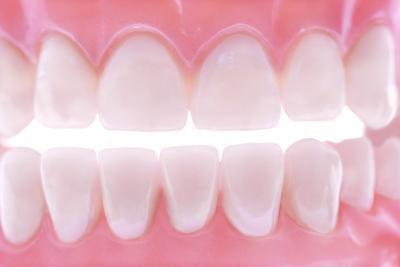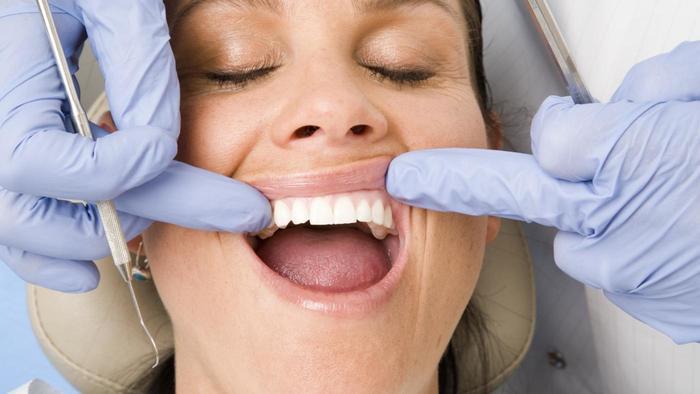What are Itchy Gums?
When you have an itching sensation on your gums due to an allergic reaction, disease, or poor oral care practices, it may be referred to as an itchy gum. Our mouths are the window through, which your body’s health can be observed.
You can tell if you are suffering from nutritional deficiencies, infections or other diseases affecting your body by the signs shown as lesions in the mouth; gum itching, irritation or swelling, and teeth loss.

Although studies show that most Americans keep their natural teeth to the end of their lives, dental health experts also say that many adults in the U.S. are currently suffering from some form of gum disease. A gum disease is one of the possible cause of an itchy gum.

Causes
Poor oral hygiene
A bad or worn out brush may be behind your gums itching. Similarly, your technique of brushing and flossing. Vigorous flossing and using mouth brush with hard bristles can make gums to itch.
Allergies
When the body incorrectly identifies food as dangerous, antibodies are released to attack the perceived threat. This reaction makes the mouth to itch, swell, or is felt as irritation in the gums consisting of the mucosal tissue. The various causes of allergy that may result in itchy gums are:
Eosinophils
These are white blood cells released to fight off allegies, asthma, and infection. Sometimes, gums can accumulate these eosinophils due to some allergens or medications. This could in turn result in itchiness and redness of the gums.
Histamines
An increased production of histamines is a potential culprit for having itchy gums. The body’s immune systems releases histamines in response to allergens, bacteria, and germs. When there is contact between histamines and free nerve endings, it could result in itchy gums.
Oral allergy syndrome
Having an itchy sensation in gums could be a sign of allergic reaction as a result of foods you have eaten such as raw fruits, seeds, legumes, spices, nuts, and vegetables.
Gum disease
When one is suffering from gum disease, especially gingivitis and periodontitis, itchy gums are some of the symptoms observed. Gingivitis is a mild form that can be helped by good oral hygiene practices such as brushing and flossing regularly. However, when not treated, more serious problems develop such as periodontitis and eventually, teeth loss.
How Serious are Itchy Gums?
An itchy gum could be occurring because of a simple thing like an allergy, but it could also be signifying an onset of a more serious dental problem like a gum disease or gingivitis.
When you experience itching in your gums or some irritation, it is advisable not to hold off seeing a dentist. The following should also be considered before the visit and compliment the results of that appointment:
- Ensure you practice good oral hygiene by always using fluoride-based toothpaste to brush your teeth twice, and cleaning with an interdental cleaner at least once every day.
- Investigate how you are brushing or flossing your teeth. You should brush your teeth in gentle circular motions instead of back and forth, which injures the gums. Also, when flossing, insert the floss carefully between the teeth instead of forcing it in.
- Change your toothbrush. Dental health experts recommend changing a toothbrush at least after every 4 months. In addition, ensure that your toothbrush has soft blunted bristles.
- Make an effort to prepare and take a balanced diet for every meal time.
- Limit the snacks taken between meals to avoid the buildup of food that is not cleaned immediately.
- Schedule and follow through regular dental check-ups. Unfortunately, statistics show that every year, approximately 100 million Americans fail to see a dentist. This is in spite of the advances made in dentistry that has improved diagnosis and treatment of dental-related problems. It is not surprising that a recorded 50% suffer from the gum disease; gingivitis.
Diagnosis
A dentist will do physical examination of the gums. A patient should also inform the dentist about the nature of the itchy, when it started, how it has been occurring, and whether there were medications or foods that may have triggered it.
The dentist will use the information garnered, the physical examination to determine the cause of itchy gum. Where the cause is believed to something other than an allergy, tests may be ordered to determine what’s causing the gums to itch. Tests may be required if there are other symptoms accompanying the itches such as pain, soreness, swelling, and bleeding of gums.
Healthy gums are a pale pink color and firm to the touch. Some people may have a deeper color of gums that is normal to their native group. If changes to your gums last longer than 2 weeks, contact a medical professional.
Moreover, where gums develop a red color, bleed easily and are puffy, seek a dental expert. They may sometimes refer you to a periodontist in cases where a gum disease has progressed. Your mouth, teeth, and tongue should also be examined to give more information about your problem. Other tests carried out when examining gum problems include:
- Complete blood count (CBC) and other blood differentials
- Measuring the pocket depth between the gums and teeth using a dental probe.
- Dental X-rays
- Review of dental and medical history to determine if there could be an underlying condition causing your symptoms.
Treatment
Treating itchy gums is based on the cause. Because itching gums could occur due to a number of reasons, it is important that a patient undergoes an examination. If the condition is caused by a reaction, the cause of the allergy should be determined. When you know what’s causing the allergy, you can avoid the allergen. This is the best approach to treating allergy related itchy gums.
As for oral allergy syndrome and histamine-related reactions, antihistamines can be administered. Although itchy gums may have mild symptoms, it could also be warning sign of a serious health problem or a severe allergic reaction. If the itching of gums is accompanied by other symptoms like difficult breathing and rapid escalation of allergic reactions, an immediate medical attention is needed.
If a gum disease is making the gums to itch, then proper treatment is needed. Taking care of your oral health cannot be over emphasized when preventing, treating, and managing your gums.
Non-surgical treatment for gum disease include:
Dental cleaning
Professional dental cleaning removes tartar that is below or above the gum line. If you have some signs of gum disease, your dentist may recommend you have dental cleaning more than twice a year. However, it is more of a preventive measure than a curative procedure.
Scaling and root planning
This is where the plaque and tartar are scraped off from the gum line and rough spots on the tooth smoothed. It is done non-surgically under a local anesthetic when your dentist determines that you have tartar under your gums that needs to be removed.
Surgery
Surgical treatments require professional expertise and are sought when the gum damage is extensive. They include:
Pocket reduction surgery
- Pocket reduction surgery which reduces the size of the space between the gum and teeth. This decreases the areas where harmful bacteria can grow.
Bone grafts
- Bone grafts intended to replace the bone destroyed by gum disease restoring the stability of your teeth
Soft tissues grafts
- Soft tissues grafts used to reinforce thin gums or fill in areas where the gums have receded
Guided tissue regeneration
- Guided tissue regeneration usually combined with the pocket reduction to stimulate growth and bone tissue growth in correct position
Bone surgery
- Bone surgery to level the craters caused as a result of the bone loss that has progressed with time
For most patients, scaling and planning are enough to correct the gum disease. Surgical options are only resorted to when the tissue around the teeth is unhealthy and cannot be repaired with the alternative non-surgical methods.
Reference List
- Gum Problems. Available at http://www.medicinenet.com/gum_problems/article.htm
- What Causes Gum Diseases? Available at http://www.medicinenet.com/gum_disease/article.htm
- Itchy Gums? Available at https://www.reference.com/web?o=600605&l=dir&qo=
- Periodontitis. Available at http://www.mayoclinic.org/diseases-conditions/periodontitis/basics/definition/con-20021679
- Gingivitis. Available at http://www.mayoclinic.org/diseases-conditions/gingivitis/home/ovc-20305807
- Gum Disease and Problems. Available at https://medlineplus.gov/gumdisease.html
- Swollen Gums. Available at https://medlineplus.gov/ency/article/003066.htm
- Itchy Gums & Allergy. Available at http://www.livestrong.com/article/528297-itchy-gums-allergies/
